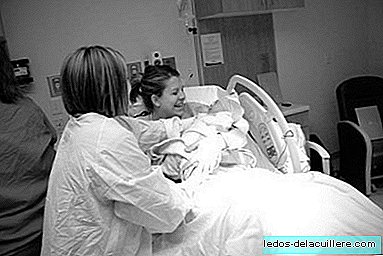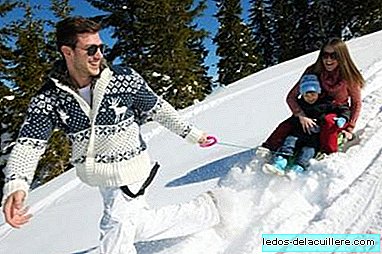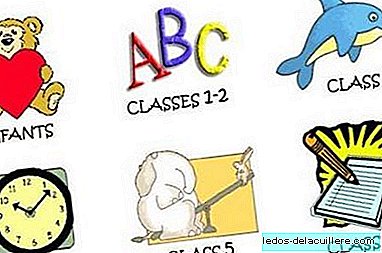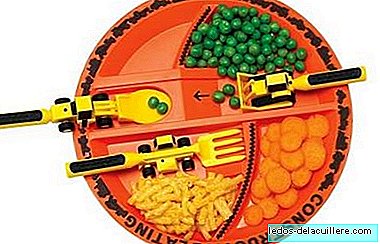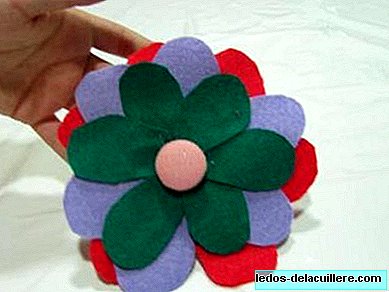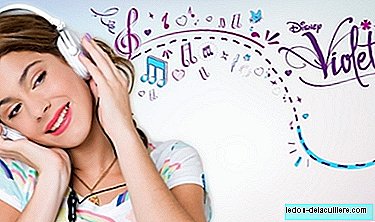
Through our special on children's television in the coming days we will stop at different stops to achieve a detailed analysis of the television programs that exist today aimed at children. On this occasion it is time to reflect on those spaces that children approach but that do not meet educational expectations Any parent could wish for.
One of these programs is curiously one of the most successful fictions that has been issued in recent months. It's about 'Violetta', a Disney Channel television series which has reaped remarkable success in our country since its arrival last September. 'Violetta', following the trend in other countries, achieved record audiences at its premiere in Spain and, after its success, Disney has already confirmed the issuance of a second in Argentina, the country in which it is filmed.
'Violetta' falls into the category of those television series that are aimed at an audience that does not correspond to the one we can intuit after viewing. The fact that it is from the Disney factory and is broadcast on a channel like Disney Channel causes many children approach her marveling at her musical aesthetic, despite the fact that it is a space that has a multitude of content aimed at teenagers. This last fact awakens the alarm of some parents who do not find in 'Violetta', whose episodes are around 45 minutes long, a fiction suitable for the smallest of the house.
Who is Violetta?
'Violetta' chronicles the life of a girl who possesses great skill for the song she inherited from her mother, a well-known singer who died when she was little. Although his father does not want Violetta to stand out in the world of music, she starts receiving classes at an art school, where he will gradually demonstrate his skills and where he will meet the people who will influence his life.
One of its main plots is Violetta's choice between two of the boys who study with her to become her partner, while trying to make her dream of success in the world of music come true. The adolescent love, the work for the success or the envies that arise between partners are some of the most recurrent themes that occur in 'Violetta', contents that do not correspond to the ideal that the parents look for for those who are still in the childhood.
What can we expect from the series?
The main problem that 'Violetta' gives off is the call made to children under 6 years old, which are dragged by the programs that Disney Channel usually broadcast the rest of the day. It would even be debatable how appropriate the broadcast for children with older ages, because 'Violetta' usually has content that we can see today in fictions aimed at adults. This is the nth television treatment of children as teenagers, accustoming them to situations that do not correspond to their age.
The series detaches that halo of ephemeral success and institute popularity which are also obtained in other fictions that have left the Disney factory in recent years, such as 'High School Musical', and that has the musical show as a great attraction for its audience. The succulent cake is presented through a series of young characters who face the problems that arise in their music academy or the relationships established between them.
It is common to observe issues that move between peer competitiveness or the struggle to become a star. In addition, the fiction stands out for the shameless love triangle that its protagonists live and that does not seem to be able to contribute anything other than the morbidity that causes to know who will be chosen by the protagonist, a fact destined to maintain the attractiveness to seduce the spectators.

In the first episode of 'Violetta' we see the arrival of its protagonist in Buenos Aires, where he will reside from that moment with his father, an overprotective man obsessed with his daughter not falling in love. Meanwhile, in the art school where the rest of the characters study, the first rivalries and the first contact between the students, dedicated to study to become music professionals, arise.
'Violetta', not everything is success
'Violetta' has been one of the successes conceived in advance by Disney, tracing the pattern of what has already worked in the past and presenting it with new faces. That is the main reason why fiction does not contribute anything new, although this has not been an impediment for will succeed among the adolescent and children of many countries. As expected, fiction is surrounded by a marketing campaign in which the sale of various products, especially musical albums or the launching of concerts with the songs of the series, prevails.
Everything indicates that 'Violetta' may have a journey beyond its first two seasons, although it does not seem that fiction is going to divert the path it has maintained to date. With 'Violetta' we can talk about television entertainment, but certainly not recommended for children, who should approach television looking for other values on television than those offered by this Argentine fiction.
After the publication of this post we received a clarification from Leticia Zuloaga from the Disney Channel Communication Department. We do not want to stop publishing your comments:
“The Disney Channel target is very broad, aimed mainly at boys and girls between 8 and 14 years of age, although in the early hours of the morning we have a Disney Junior strip with programming aimed at children (from 2 to 7 years). Violetta is a series that aims to approach preteens and teenagers who contact the channel, so its broadcast schedule is also at 9pm, trying to differentiate that it is a series for the older ones, hence its slightly more adult content How well you pointed out. In the same way, we have many educational series, dedicated mainly to the little ones that we are sure you will know perfectly. This is the case of Manny Manitas (who teaches English), Doctor Toys (who teaches children how to take care of themselves and help others), Little Einsteins, The House of Mickey Mouse, Jake and the Neverland Pirates of Never, Phineas and Ferb And a long etcetera."


